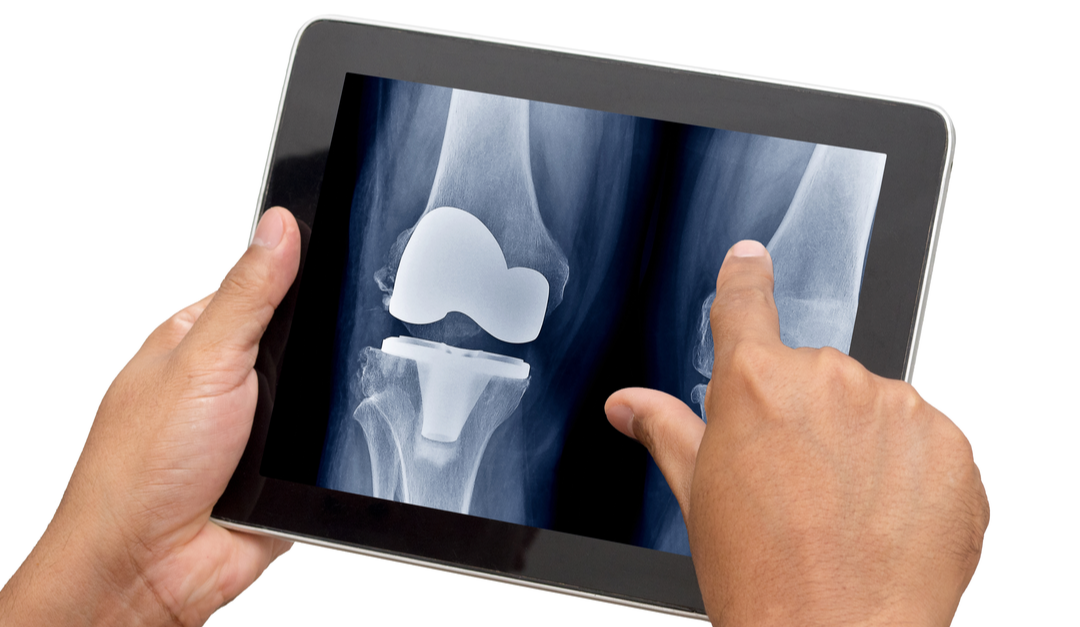Total knee replacement is one of the most popular and effective types of orthopedic surgery. Countless patients who have undergone a total knee replacement have had their pain eliminated and their range of motion restored. If you have heard of total knee replacement as a treatment option and are interested in learning more, this post is for you. It contains much of the information you need to know and provides the resources needed to make an appointment with an orthopedic specialist who specializes in treating knee conditions and injuries.
What is a total knee replacement?
A total knee replacement is an orthopedic procedure used to replace an osteoarthritic knee joint that is causing pain and limiting motion. The surgery is performed under regional anesthesia, utilizing nerve blocks and in some cases injections of anesthetic into the soft tissues and bone. During the procedure, an orthopedic surgeon performs the following steps:
- Minimal amounts (several millimeters) of osteoarthritic bone are removed from the ends of the thigh and shin bones (femur and tibia) above and below the knee
- Special metal alloy knee replacement components sized for the particular patients anatomy, are cemented onto the ends of the bones, allowing the restoration of the alignment and range of motion to the knee to mimic the normal function of the knee
- A ultra high molecular weight polyethylene plastic bearing is placed between the metal pieces,
Once the components are in place and the orthopedic surgeon performs a series of tests to ensure the knee is moving properly, the incision used to perform the surgery is closed using sutures and skin staples.
Patients typically stay in the hospital for only a day after their procedure. Pain is controlled via oral and in some cases injectable medication, and specific measures are taken to lessen the risk of infection and blood clots during this time.
What is the recovery time for a total knee replacement?
Physical therapy begins hours after the surgery in the hospital and then continues at home and on an outpatient basis.
Patients see their surgeon for their first postoperative appointment within ten days to two weeks after surgery. At this appointment, skin staples, and/or sutures may be removed.
Over the course of ten to twelve weeks, patients work closely with their physical therapist and orthopedic specialist to regain strength and improve their range of motion. Pain steadily decreases during this time. Activities are increased/added depending on pain levels and response to therapy. The total recovery time for a TKR depends on many factors. Typically, patients can exercise and return to low impact physical activities within eight to twelve weeks after surgery.
What results are seen following a total knee replacement?
Total knee replacement is one of the most effective types of orthopedic surgery. Because osteoarthritic bone is removed and replaced with special components, patients no longer feel the pain caused by osteoarthritis. Their joint space is restored, deformities are corrected, and their knee range of motion and strength returns. Patients are able to return to work or activities that they love in a relatively short period of time.
How do I make an appointment with a Knee Replacement Specialist?
Knee pain should not dictate the way you live your life. If you are experiencing knee pain that does not go away on its own or respond to conservative treatment measures, please do not hesitate to contact our offices in Mahwah and Clifton, NJ to make an appointment. Every measure will be taken to provide you with an accurate diagnosis and effective treatment plan. The knee pain solution you have always wanted can be found when you see one of our specialists.
Dr. Nicholas Alexander is the founder of Mahwah Valley Orthopedic Associates and a Board Certified Orthopedic Surgeon specializing in both the surgical and non-surgical treatment of hip and knee conditions. Dr. Alexander completed his Fellowship in Adult Reconstruction and Reconstructive Surgery of the Hip and Knee at the Johns Hopkins School of Medicine and has over two decades of experience. He also serves as the Chairman of the Valley Hospital Total Joint Center.

